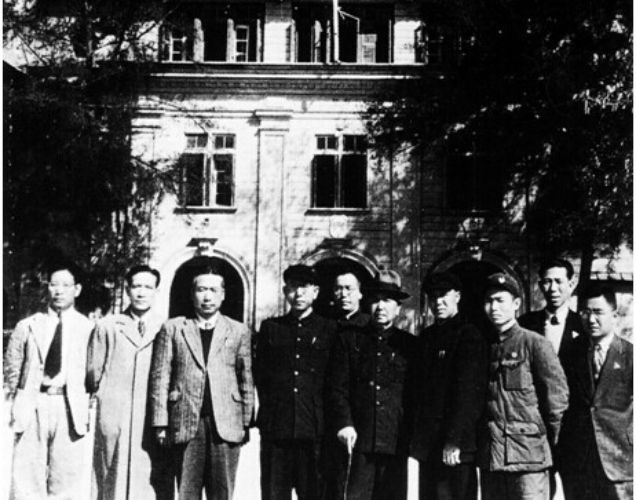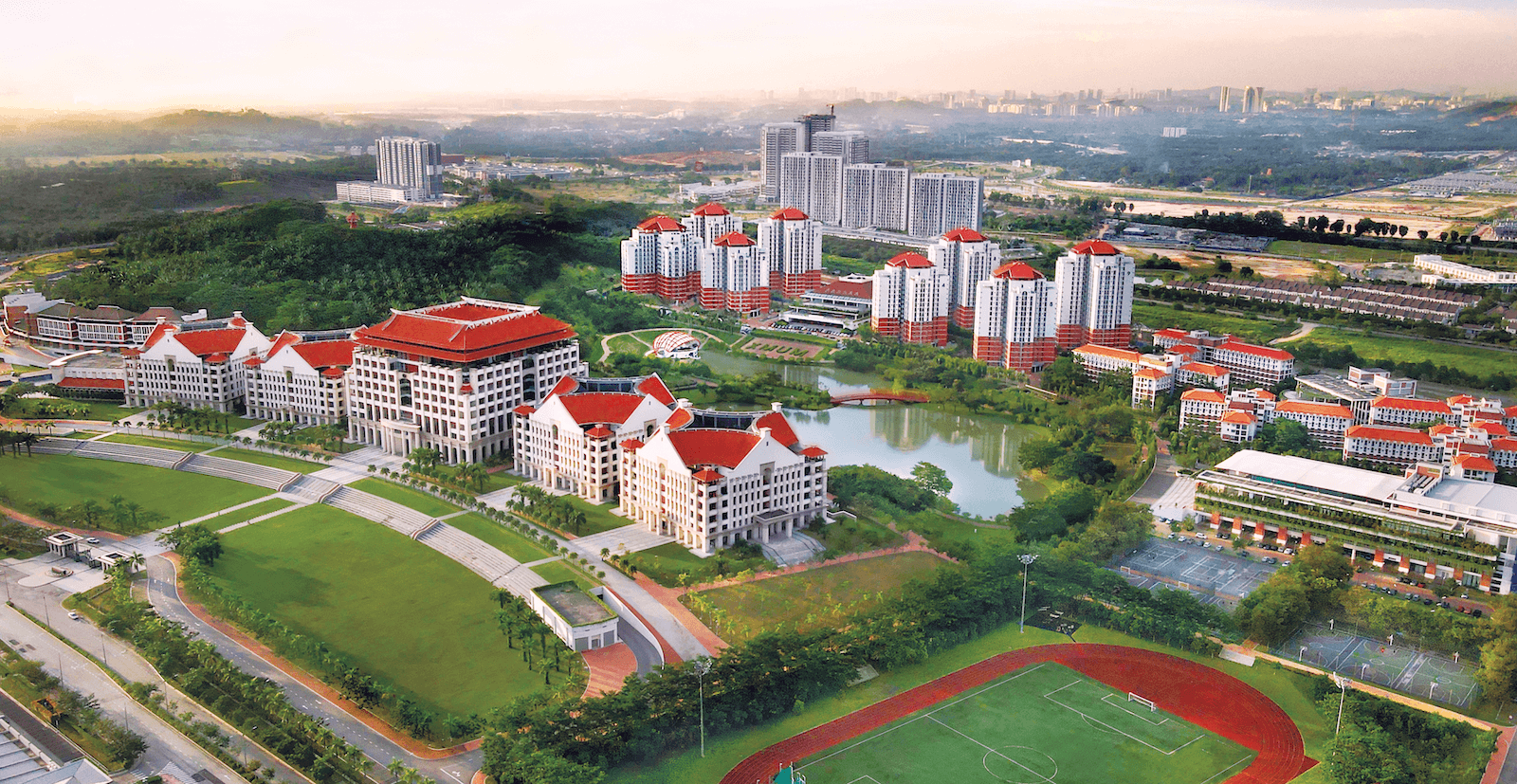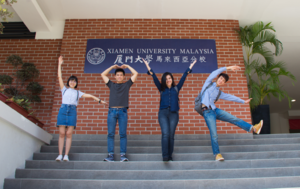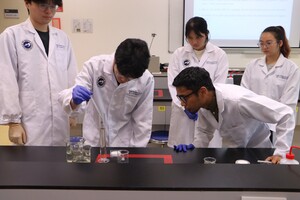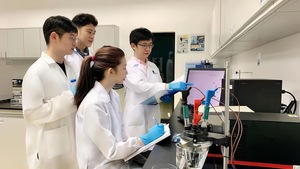- About
- Admissions
-
Academics
- Research & Innovation
- Campus Life
- Library
- More
Text
About the Programme
The New Energy Science and Engineering (NESE) programme focuses on creating efficient, safe, eco-friendly, and cost-effective solutions for energy generation, conversion, transportation, storage, and application. Its primary goal is to enhance efficiency while minimising negative impacts on humans, nature, and the environment. Investing in alternative energy sources is vital to addressing environmental challenges, strengthening energy security, driving economic development, and safeguarding public health for current and future generations.
What sets NESE apart is its unique approach to integrating fundamental science with real-world applications. Students are introduced to cutting-edge technologies in alternative energy, underpinned by strong engineering principles. The programme equips them with the knowledge and skills needed to become adaptable professionals with deep expertise, ready to excel in energy-related industries or adjacent fields such as semiconductors, manufacturing, artificial intelligence, and consultancy.
The NESE programme is supported by a distinguished faculty comprising leading researchers and engineering experts specialising in clean chemical energy, solar and wind energy, bioenergy, energy economics, energy storage, and energy efficiency engineering. These experts are committed to high-quality research and development in energy science and technology, complemented by essential knowledge in electronics and mechanical engineering.
Note: The degree is a unique multidisciplinary programme that integrates science and engineering knowledge into real-life applications. This programme is accredited by the Malaysian Qualifications Agency (MQA) but is not accredited by the Board of Engineers Malaysia
Programme Highlights
- As a one-of-a-kind programme in South East Asia, it produces well-trained professionals who can devise strategies to counter the global energy crisis by promoting efficient, clean, renewable and sustainable energy technologies.
- A customised programme that benefits from vast experience in energy technology research and development. Close cooperation with leading overseas universities and major industry players ensures up-to-date appreciation of energy-related technology developments and research directions.
Career Opportunities
- Energy Generation
This category focuses on developing and managing systems to produce renewable and sustainable energy.
Clean Energy and Renewable Energy Industry
Specialisation: Renewable energy engineer, solar energy specialist, hydrogen energy specialist & bioenergy/biofuel scientist, etc.
- Energy Storage
This category focuses on innovating storage solutions to enhance the reliability and scalability of renewable energy systems.
Energy Storage and Materials Development Industry
Specialisation: Batteries, supercapacitors, hydrogen storage specialist, energy materials scientist/specialist, etc.
- Energy Utilisation and Applications
This category is focused on optimising energy use and developing systems to reduce waste and improve sustainability.
Energy Management and Semiconductor Industry
Specialisation: Energy management expert, semiconductor power electronics specialist, artificial intelligence expert, carbon capture and storage (CCS) expert, energy industrial optimisation, etc.
Note: The degree is a unique multidisciplinary programme that integrates science and engineering knowledge into real-life applications. This programme is accredited by the Malaysian Qualifications Agency (MQA) but is not accredited by the Board of Engineers Malaysia
Entry Requirements
| Qualification | Requirement |
| STPM | A pass in STPM with at least a Grade C (GP 2.0) in Mathematics AND Physics/Chemistry |
| A-Level | A pass in A-Level with at least a Grade C in Mathematics AND Physics/Chemistry |
| UEC | A pass in UEC with at least a Grade B in 5 subjects including Mathematics AND Physics/Chemistry |
| Foundation / Matriculation | A pass in Foundation/Matriculation with at least a CGPA of 2.0 out of 4.0 AND passes in Mathematics AND Physics/Chemistry |
| Diploma | A pass in Diploma in Engineering/Engineering Technology or the equivalent with at least a CGPA of 2.5 out of 4.0 AND passes in Mathematics AND Physics/Chemistry |
| AND | MUET - at least Band 2 or its equivalent |
*For other equivalent qualifications, please consult our programme counsellor.
Main Courses
Text
- General Chemistry
- Physical Chemistry
- General Physics I
- Calculus I A
- Linear Algebra
- Energy Project Management
- Energy Economics and Policy
- Engineering Drawing
Text
- General Physics II
- Analytical Chemistry
- Organic Chemistry
- Probability and Statistics B
- Calculus 2
- Circuit Foundation
- Introduction to Electric Power Systems
- Principles of Chemical Engineering I
- Foundation of Materials Science
- Corrosion and Protection of Materials
- Programming in Language C
Text
- Principles of Chemical Engineering II
- Engineering Thermodynamics
- Engineering Fluid Mechanics
- Petrochemical Engineering
- Practices of Energy Technology
- Energy Innovation Lab
- Industrial Training
Text
- Thesis 1
- Thesis 2
- Major Electives (Choose 7)
Text
Area 1 – Energy Generation
- Solar Energy Engineering
- Fuel Cell Technology
- Nuclear Energy Engineering
- Advanced Biomass Conversion Technologies
Area 2 – Energy Storage
- Technology of Electrochemical Power Sources
- Nanotechnology and Nanomaterials
- Chemical Engineering for Energy
Area 3 – Energy Utilisation and Applications
- Modelling and Simulation in Energy Engineering
- Semiconductor Physics
- Electrical and Electronic Technology
- Additive Manufacturing for Innovative Design and Production

